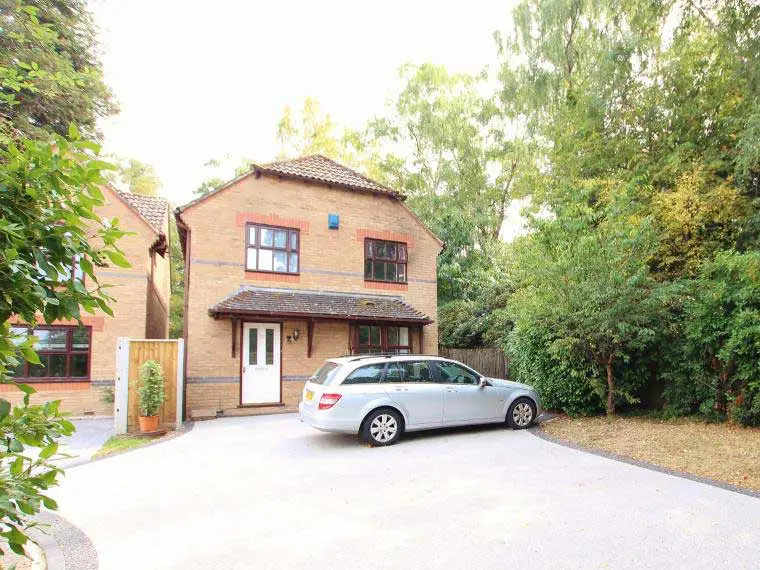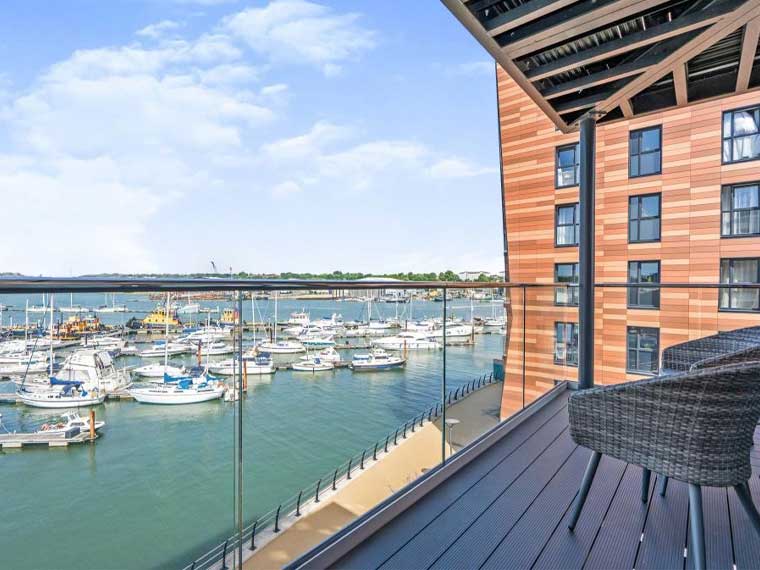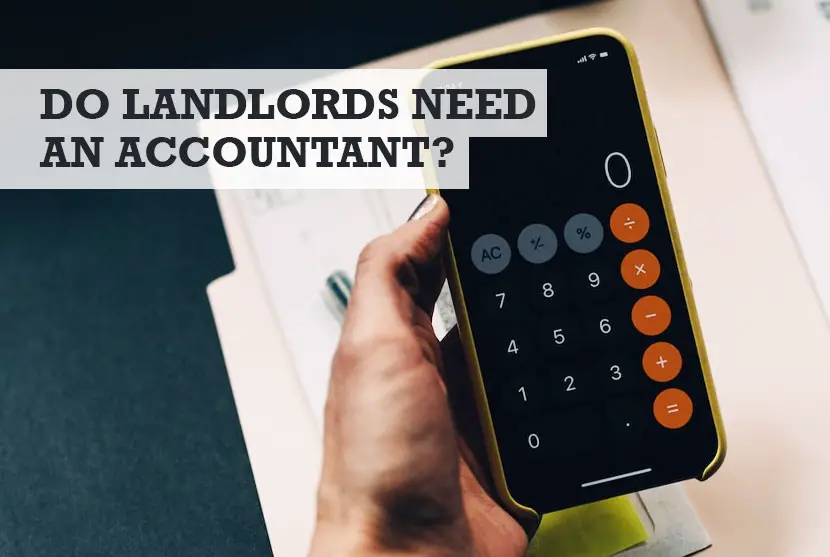If you are just about to step into the complex world of renting out property, one of your biggest concerns (at least it should be) is tax and accounting. It can be very confusing which is why we’ve created this guide for landlords debating whether they need an accountant or not.
But firstly, let’s get the main question out of the way first, which concerns whether landlords do need accountants or not.
You do not need an accountant as a landlord. There is no legal requirement for landlords to have accountants to help with rental income tax. However, not having an accountant could be costly as tax legislation for landlords is complex with lots of room for error.
Whilst there is no legal requirement for landlords to have an accountant when earning rental income, you could be losing out on valuable cash and profit if you do not reclaim tax reliefs and your expenses where possible.
This area is made more complex by some not even knowing whether they are classed as a landlord or self-employed. For example, do you need an accountant for a rental property when it’s just the one, rather than a portfolio.?
And then you have the questions over Making Tax Digital for Income Tax. This will apply to all landlords whose total property income is above £10,000 per annum from April 2024. We will dedicate another article to that another day.
But for now, here’s what you need to know about needing an accountant for rental income, and what tax concerns you should be aware of.
Do landlords need accountants?
When answering something as simple as whether you are a landlord or self-employed for your rental income then you do really need to start asking yourself whether you need an accountant for your rental property.

For example, are you able to confidently work out and submit all the following to HMRC? If you can, you might not need an accountant as a landlord. If you can’t, you most certainly will need some professional accountancy help.
Here’s what can be involved…
What can I claim as a landlord?
There is a wide range of expenses that a landlord can claim.
- Utilities
- Ground rent and service charges
- General maintenance and repairs (HMRC make a clear distinction between property repairs and property improvements)
- Insurance
- Legal and accountancy fees
- Travel costs
- Marketing costs
- Phone, broadband and stationery
- Letting agent fees
What you can’t claim for as a landlord
- Capital expenditure
- Clothing
- Personal expenses
HMRC have strict rules on what landlords can claim as an allowable expense.
After you have determined which costs you can claim as a landlord you will need to ensure that you keep accurate books and records.
Simplified expenses for self-employed landlords
Simplified expenses are a way of calculating certain allowable expenses using flat rates, rather than working out individual costs. You can find out the flat rates by using HMRC’s simplified expenses checker.
Simplified expenses can be used by self-employed people and business partnerships – they can’t be used by limited companies or business partnerships involving a limited company.

When it comes to simplified expenses as a landlord, you’ll want to think about:
- Travel expenses – you can’t claim on regular travel between your home and place for work. You can claim for travelling to view new properties if you end up buying the property.
- Staff expenses – you can pay people (even family members or friends) who carry out work related to the property if they don’t own a share of the property.
Landlords who operate as a limited company can’t use simplified expenses
What can landlords set against tax?
There are different rules for what landlords can set against tax depending on the type of rental property. This is where you might need an accountant as a landlord to give you advice.
We can offer you some immediate help though…
What can landlords set against tax for residential properties
You or your company must pay tax on the profit you make from renting out the property, after deductions for ‘allowable expenses’.
Allowable expenses are things you need to spend money on in the day-to-day running of the property, like:
- letting agents’ fees
- legal fees for lets of a year or less, or for renewing a lease for less than 50 years
- accountants’ fees
- buildings and contents insurance
- maintenance and repairs to the property (but not improvements)
- utility bills, like gas, water, and electricity
- rent, ground rent, service charges
- Council Tax
- services you pay for, like cleaning or gardening
- other direct costs of letting the property, like phone calls, stationery, and advertising
If you’re a company paying Corporation Tax, you can claim interest on property loans as an allowable expense. You cannot do this if you’re an individual landlord who pays Income Tax.
Allowable expenses do not include ‘capital expenditure’ – like buying a property or renovating it beyond repairs for wear and tear.
You may be able to claim tax relief on money spent on replacing a ‘domestic item’. This is called ‘replacement of domestic items relief’.
Domestic items include:
- beds
- sofas
- curtains
- carpets
- fridges
- crockery and cutlery
You must have only bought the domestic item for use by tenants in a residential property and the item you replaced must no longer be used in that property.
The replacement of domestic items relief is available from:
- the 2016 to 2017 tax year for individuals and partnerships
- 1 April 2016 for companies
What can landlords set against tax for furnished holiday lettings
For furnished holiday homes, you may be able to claim:
- plant and machinery capital allowances on furniture, furnishings and so on in the let property, as well as on equipment used outside the property (like vans and tools)
- Capital Gains Tax reliefs – Business Asset Rollover Relief, Entrepreneurs’ Relief, relief for gifts of business assets and relief for loans to traders
You can only claim these if all the following apply:
- the property is offered to let for at least 210 days a year
- it’s let for more than 105 days a year
- no single let is more than 31 days
- you charge the going rate for similar properties in the area (‘market value’)
If you own the property personally, your profits count as earnings for pension purposes.
To help with your tax return, you can use the capital allowances help sheet and the furnished holiday lettings help sheet.
What can landlords set against tax for commercial properties
You can claim plant and machinery capital allowances on some items if you rent out a commercial property – like a shop, garage or lock-up.
How much tax do landlords pay?
How much tax landlords pay depends on the level of profits made on your property lettings. All your taxable income, not just rental income and expenditure should be reported via a self-assessment tax return.
The amount of tax a landlord will pay will depend on the total taxable income as the amount of tax calculated is linked to the total taxable income.
Handy Hint: For more detailed information, read our separate guide to how much tax landlords pay.
Conclusion
As you will have gathered by now there is no legal requirement to have an accountant as a landlord. You will have also realised that nothing in relation to being a landlord is straightforward.
Something as seemingly simple as whether you are a landlord or self-employed is much more complex than you would have imagined.
The type of rental income you receive, how much, and whether it is best to take tax reliefs and not offset costs are all things that require judgment, skill, and an understanding of the UK tax system.
If you are comfortable with these things and happy to keep up to date with the legislation which changes each year, then sure go for it.
For those that would feel much more comfortable putting this in the hands of a professional then you should seek the help of an accountant or bookkeeper.
The rules around property income are complex so if you do decide to hire a professional make sure you use someone that has a good working knowledge of this area so you can be certain of the benefits outweigh the costs.
More small business owner guides…
Calculator image in header via https://unsplash.com/photos/3-Tc_5LROrM

Jon has been in business since 1999, and in that time worked with more than 300 small business clients. As well as being an accountant, he is also an early adopter of tech, and has helped small businesses to leverage the power of their computer systems by creating software to automate and simplify accounting tasks.







